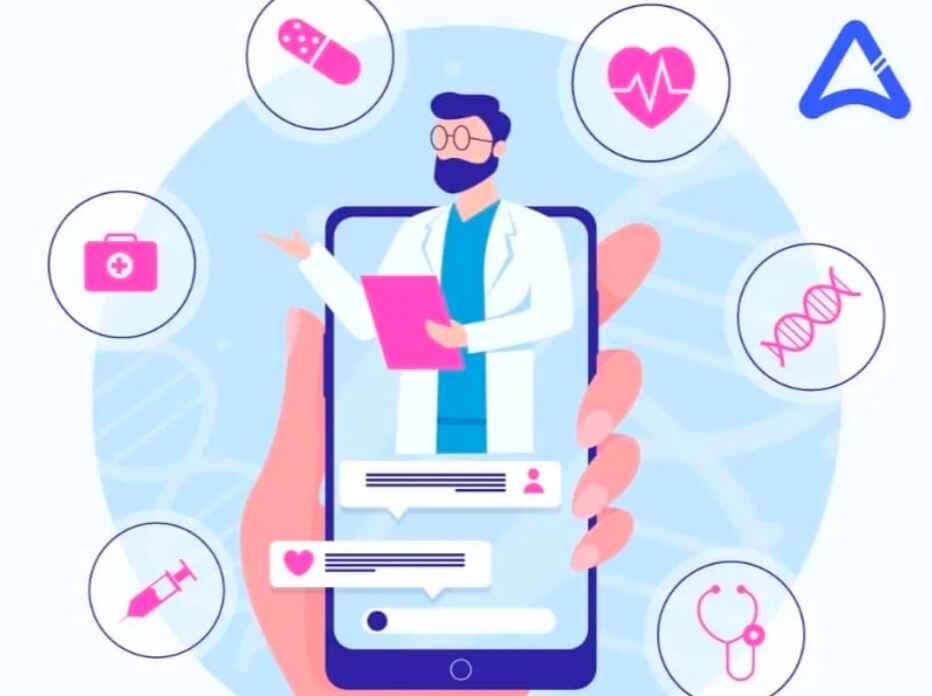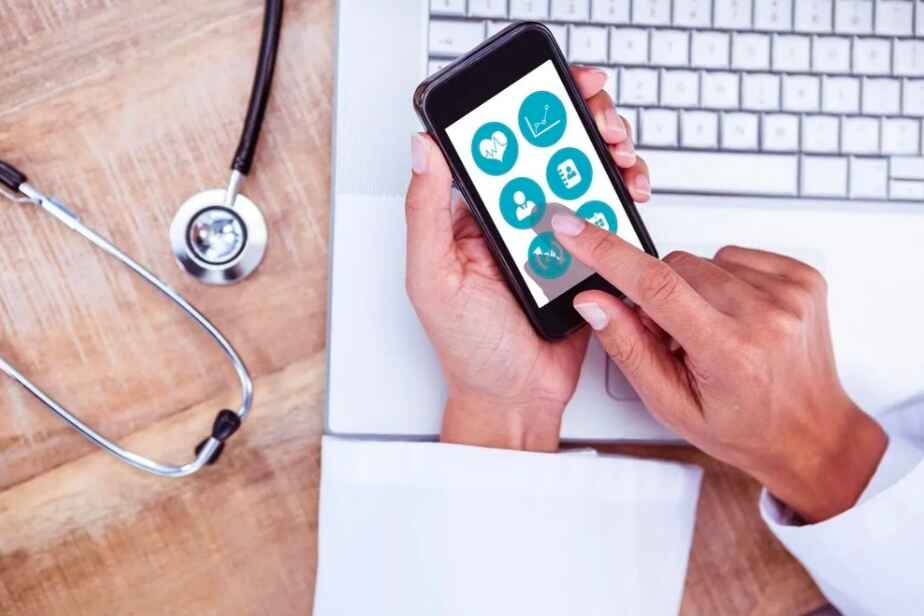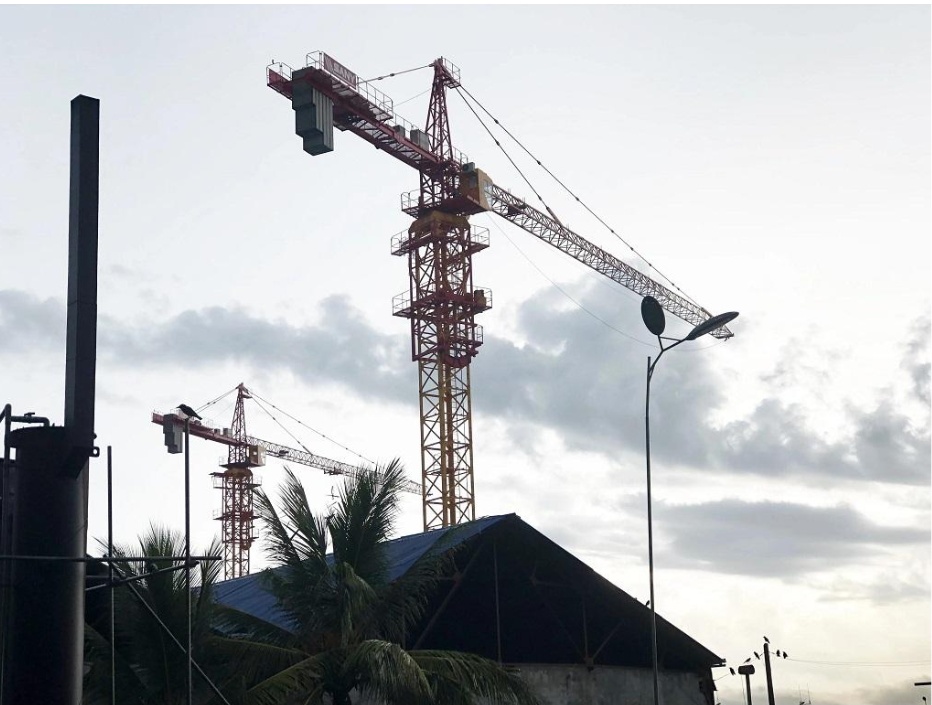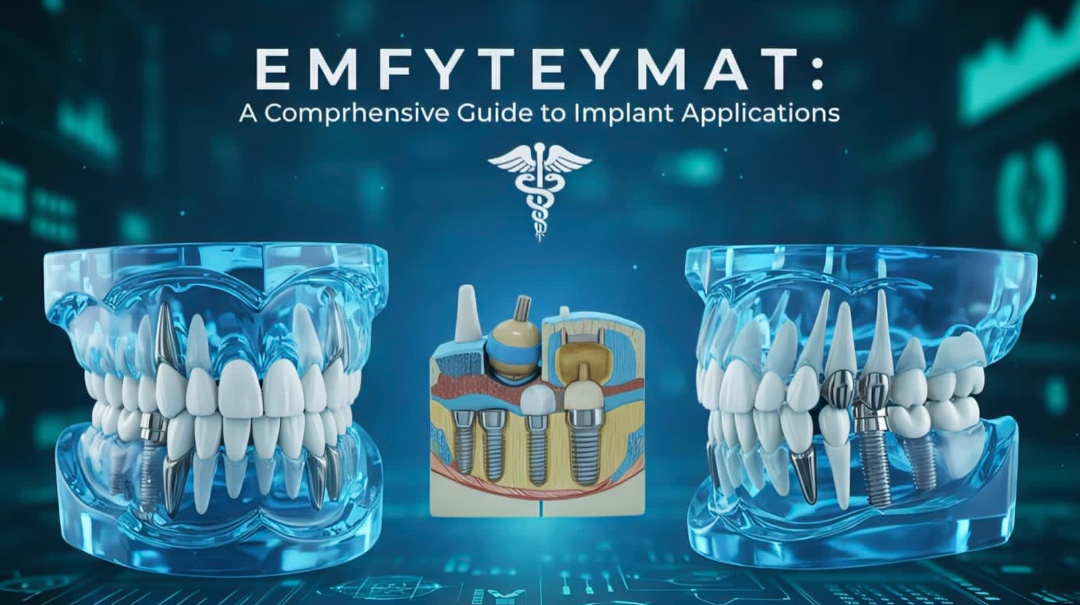App development for healthcare has become a cornerstone of modern medical innovation. As the demand for affordable, effective, and safe application solutions grows, it enables patients, practitioners, and health systems to transform care delivery. These apps are fundamental tools for filling healthcare gaps, whether telemedicine or mobile health monitoring. This article is helpful for those who are planning to develop a healthcare mobile app because it covers the most crucial aspects of properly creating a robust and legal app.
Introduction to Healthcare App Development
App Development for Healthcare requires designing software tools that will meet the demands of patients and healthcare providers. These apps make accessing care easier, facilitate communication, and decrease costs in existing operations.
The healthcare mobile app development market is expanding steadily, primarily due to advances in related technologies and the emerging need for remote healthcare. From a simple pedometer worn on the wrist to the choice of a hospital to manage healthcare – applications are changing the world’s perception of health.
Key Features of a Successful Healthcare App
Successful app development for healthcare aims at features that make the app easy to navigate, conditions that will make care delivery easier, and security of data that goes into the app. Here is a list of the main aspects that any healthcare app must contain if its purpose is to provide value and meet the user’s needs and expectations.

Must-Have Features for Patients
Healthcare app development must prioritize patient needs. Features such as scheduling of appointments, reminders regarding medicines, and several health-related tools enhance the general user experience.
Many apps have built-in features such as symptom checkers and intelligent diagnostic tools to give patients a quick overview of what they might be dealing with, so they don’t have to visit their doctors physically for minor issues.
Must-Have Features for Healthcare Providers
Regarding options that would help healthcare providers develop different healthcare applications, some critical areas include implementing systems that work with EHRs, telemedicine features, and real-time communication options.
Analytics and the ability to remotely monitor employees also include dashboards and monitoring applications that help doctors and staff make appropriate decisions or provide suitable treatments for their patients.
Security and Compliance Features
Since healthcare apps process personal information, the security of such apps is of great concern. During healthcare app development, ensuring compliance with regulations like HIPAA in the US and GDPR in Europe is essential.
Features like encrypted communication, multi-factor authentication, and role-based access ensure that patient information remains secure while maintaining accessibility for authorized users.
Regular web app testing validates these security measures by identifying and addressing potential vulnerabilities before they can be exploited.
Explore custom healthcare software development to understand how tailored solutions address compliance and security needs.
Steps for App Development for Healthcare
Efficient app development for healthcare requires a systematic approach, from understanding user needs to deploying and maintaining a secure, functional app. Below are the essential steps to guide the development process and ensure success.

Step 1: Research and Market Analysis
The first thing to know about building a healthcare mobile application is your target audience. Pre-competition research includes exploring patient and provider preferences and scrutinizing competitors to determine market deficiencies.
By collecting these, it will be possible to develop orthogonal solutions that can solve concrete problems in the healthcare domain at the same time.
Step 2: Defining Features and Functionality
Once the research is complete, outline your app’s core functionalities. A structured list of features guarantees that the app is developed to meet the client’s expectations as well as the standards of the healthcare industry.
For instance, arrange clinical services indicators per the utilizers, telemedicine indications command, appointment setting, and advanced data transfer.
Step 3: UI/UX Design

Designing health apps for use presupposes ease of use for the many different target groups ranging from innovative doctors and other healthcare experts to elderly patients.
Pay a lot of attention to lines, the presence of a menu and sections, readable texts, excluding colored backgrounds, and simple voice commands to help people with poor sight.
Step 4: Development and Technology Stack
Choosing the correct technology is significant when it comes to healthcare application development. Afterward, select frameworks and APIs promoted within the healthcare organization’s current environments and applications.
For instance, integrating APIs for EHR or wearables can enhance the app’s functionality and user engagement. Cross-platform development tools like Flutter ensure a consistent experience across devices.
Step 5: Testing and Quality Assurance
Testing is critical to developing a reliable E-health application since real-world conditions are expressed in the minor details of software operations.
Make sure the app can protect the healthcare data, and the application must be stable under the pressure load.
Step 6: Deployment and Maintenance
The last process of app development for the healthcare sector is deployment. To release your app on iPhone and Android, you must go through the App Store and Google Play guidelines.
After the launch, get feedback from the user and ensure you constantly fix the errors or add the necessary features depending on the new regulations the app has to meet.
Build Your Healthcare App with KMS Healthcare
The use of app development for healthcare has a massive opportunity to reshape the delivery of patient care and the functionality of healthcare providers. When these features are integrated, the app you develop must meet compliance regulations and embrace current technology to succeed in the healthcare sector.

At KMS Healthcare, we specialize in custom healthcare software development, ensuring your app is user-friendly, secure, and tailored to your unique requirements. Ready to bring your vision to life? Partner with KMS Healthcare today and transform your healthcare app idea into reality.
FAQs
If you are starting a project of healthcare application development, questions about features, conformity, and further strategies can arise. Here are the answers to some of the questions you will likely ask to get you started.
What is app development for healthcare?
Healthcare app development refers to designing mobile or web applications to enhance the produce offered by the healthcare sector.
Why is security important in healthcare app development?
Security is paramount, more so in healthcare apps, because of the type of data processed, which is data that HIPAA and GDPR usually regulate.
What are the must-have features in a healthcare app?
Key features include appointment scheduling, telemedicine, EHR integration, and secure data sharing. These functionalities improve usability and user satisfaction.
How do I start with healthcare app development?
Start by researching user needs, defining features, and working with a development team experienced in healthcare compliance and technology.
What are the benefits of healthcare app development?
Health applications increase availability, raise the level of healthcare, and cut costs, thus becoming valuable assets in patient and clinician settings.










